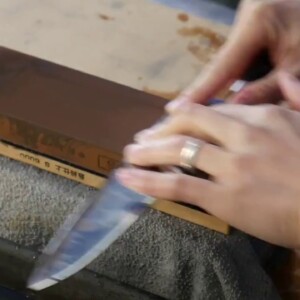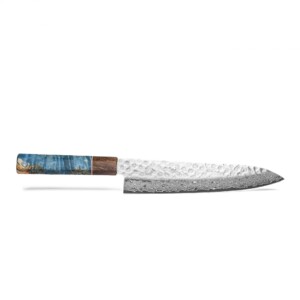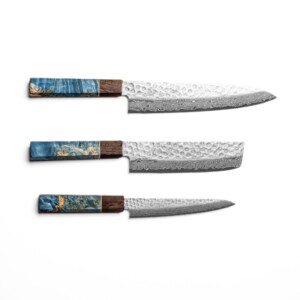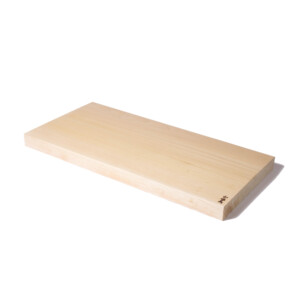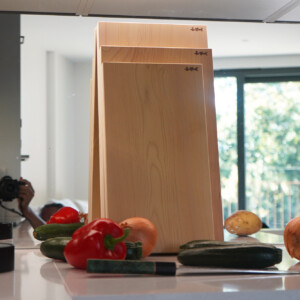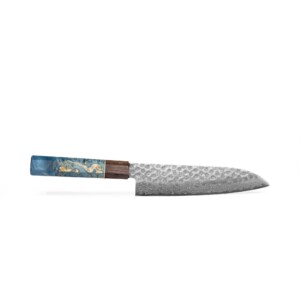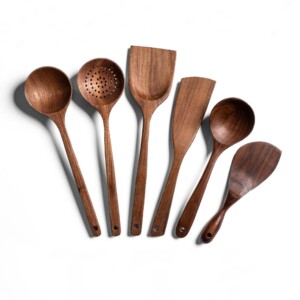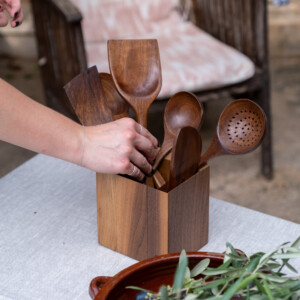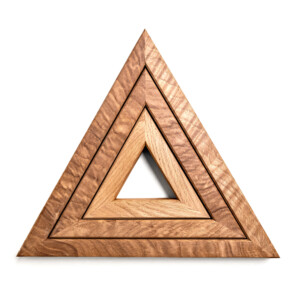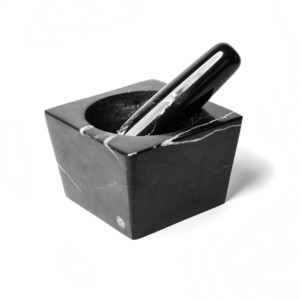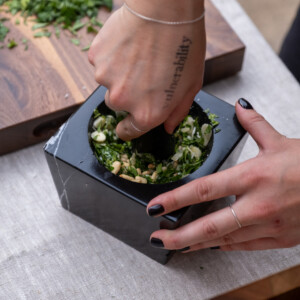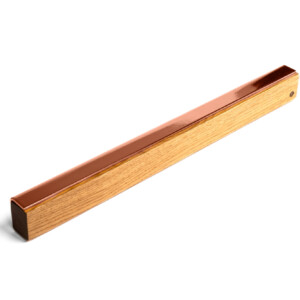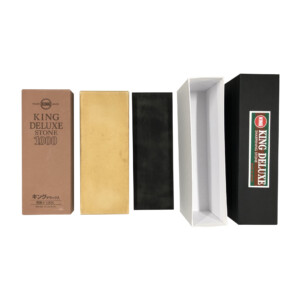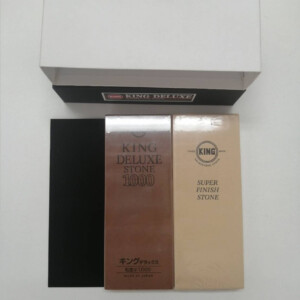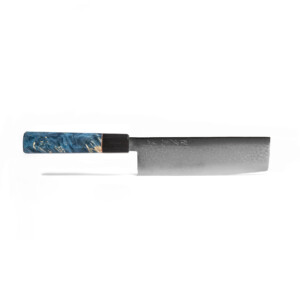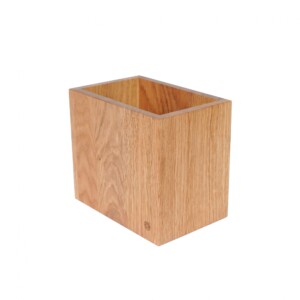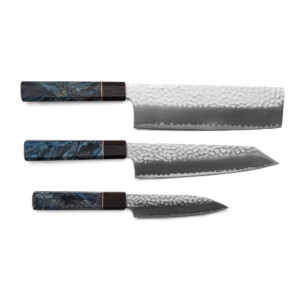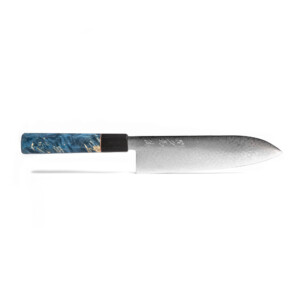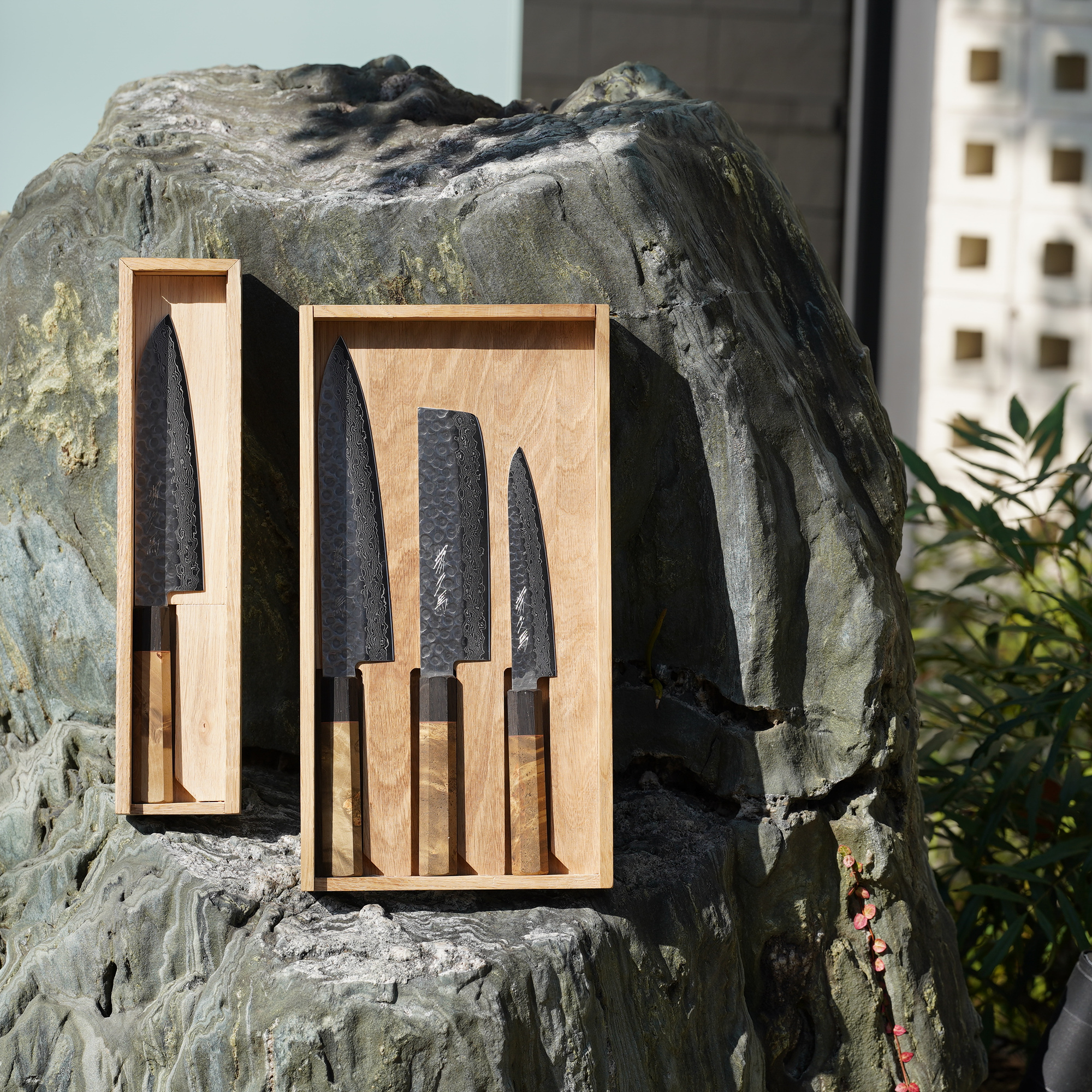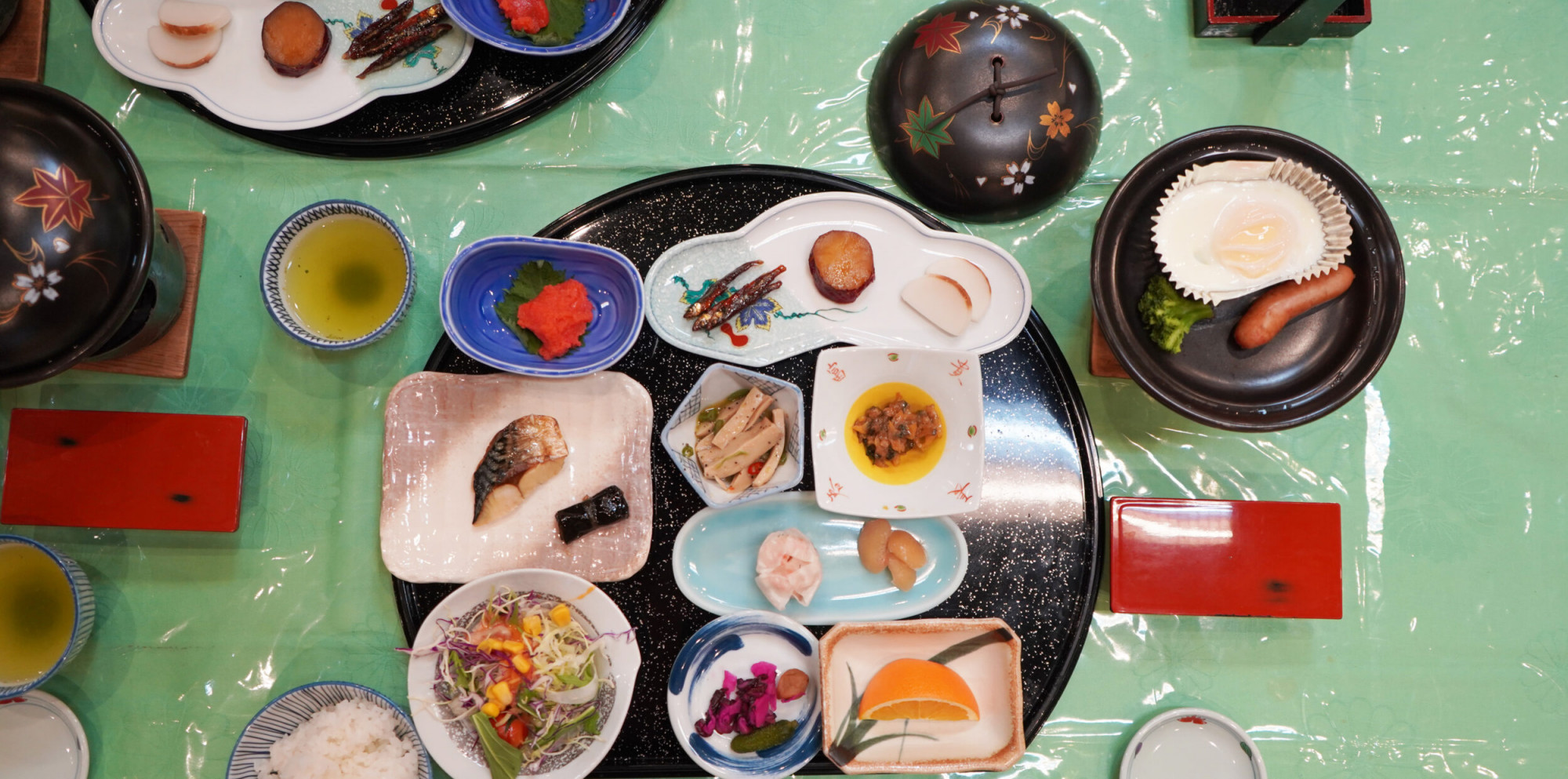Whenever possible, our knives are rated for how hard they are with what is called the Rockwell rating or measurement (HRC) of the steel. You may wonder what this rating is and what number is a “good” number for hardness of the knife you want to buy.
Things to consider when buying a kitchen knife
When discussing how hard something is it can be difficult to be precise about it – unless you have a measurement. When someone say to you that something is as soft as butter for instance, you’d probably imagine that butter in a room temperature. Remember, though, that softness depends on if it’s a hot day, if it’s fresh out the freezer etc. They all change something we think of as soft into something either gooey or impossible to spread on bread!
What we need is a measurement, a number, a scale to let us know how hard something is. Step in the Rockwell hardness scale and the one we are interested in for kitchen knives is the one call “HRC”.
HRC is clever in its simplicity. The short easy version is HRC measures how much of a dent/mark a diamond point can make in the metal with a measured amount of weight. The smaller the mark the harder the steel.
Ranges of HRC
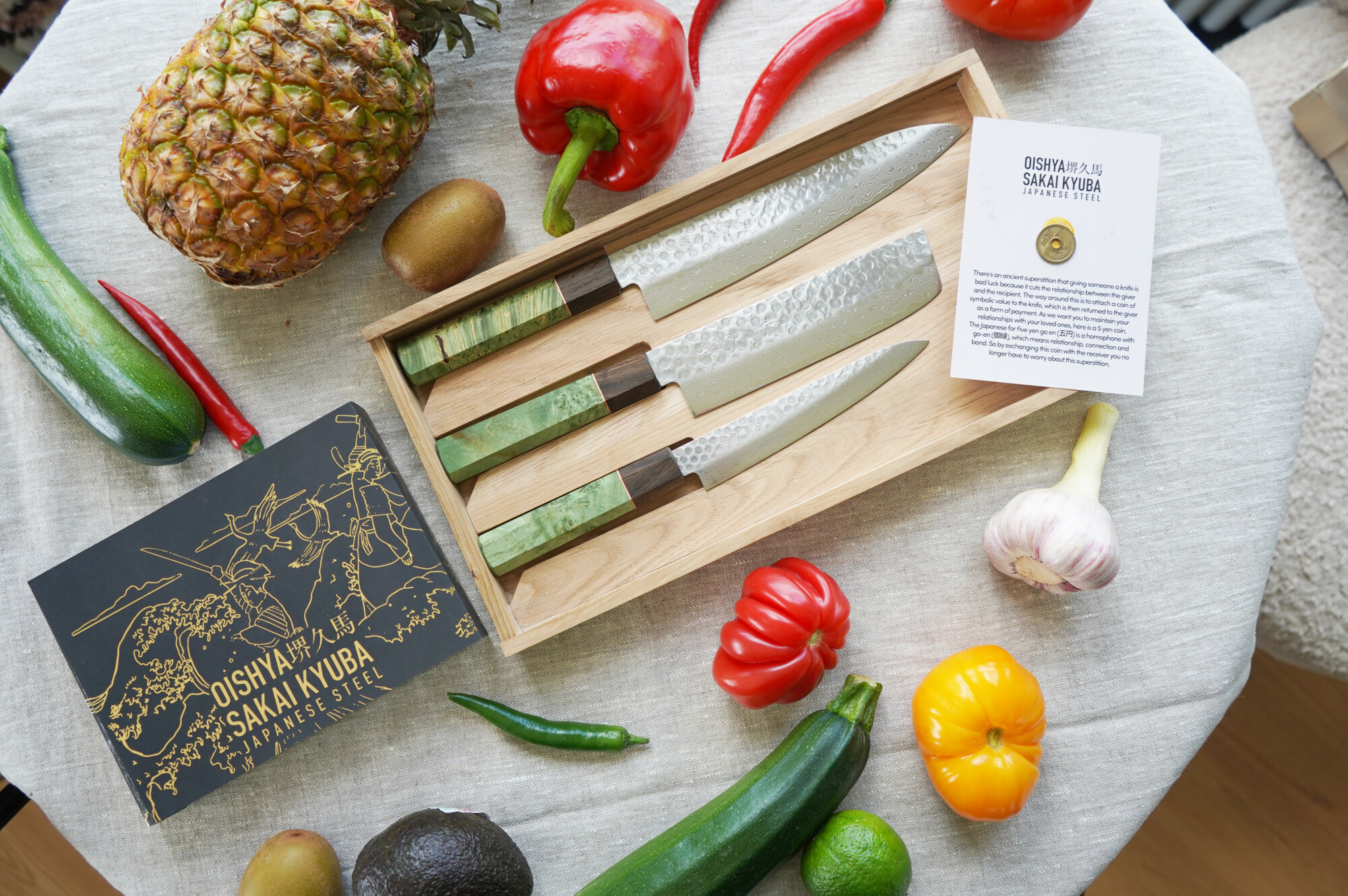
For solid kitchen knives you will likely see ratings from 60-66HRC. For a comparison, an axe would be about 50HRC, your super market special knives are 54-58HRC. E.g. our Sakai Kyuba knives are between 62 and 63 HRC making them keep the edge well, while not being too fragile to the point of chipping easily.
The higher the rating, the harder the material so the thinner/finer the cutting edge can be. Which is why you see higher ratings on our knives as they are hammered to be sharper.
So you might be thinking “higher is better” and as a rule of thumb it is, but as ever there are trade offs. The harder the steel the more fragile it can be so high steel knives are more likely to chip if misused. This can be countered somewhat by the choice of steel; powder steels can have a very high HRC rating.
Kitchen knife’s rockwell hardness should be balanced
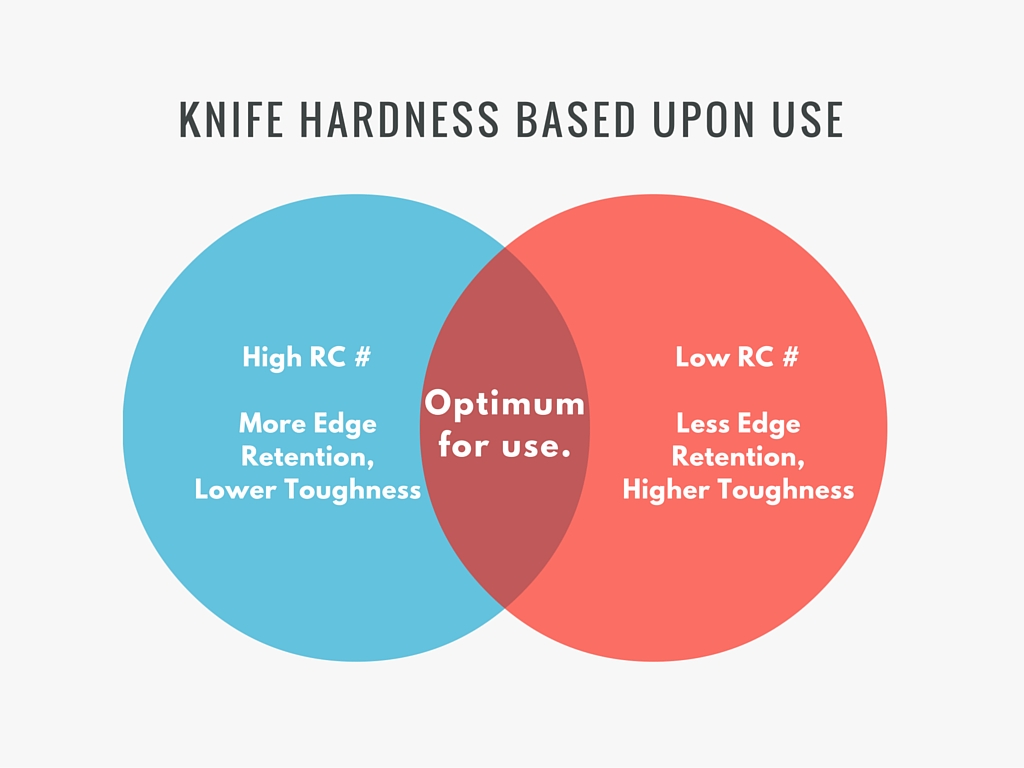
The other point worth noting is that the harder a steel is, the longer they can take to sharpen. On the good side, they stay sharper for longer. This is one of the whole points of getting a good knife for life. More time spent cooking rather than sharpening and maintaining it properly. If you are unsure what knife you need for your purpose, give us a shout. We are always happy to help! 🙂

